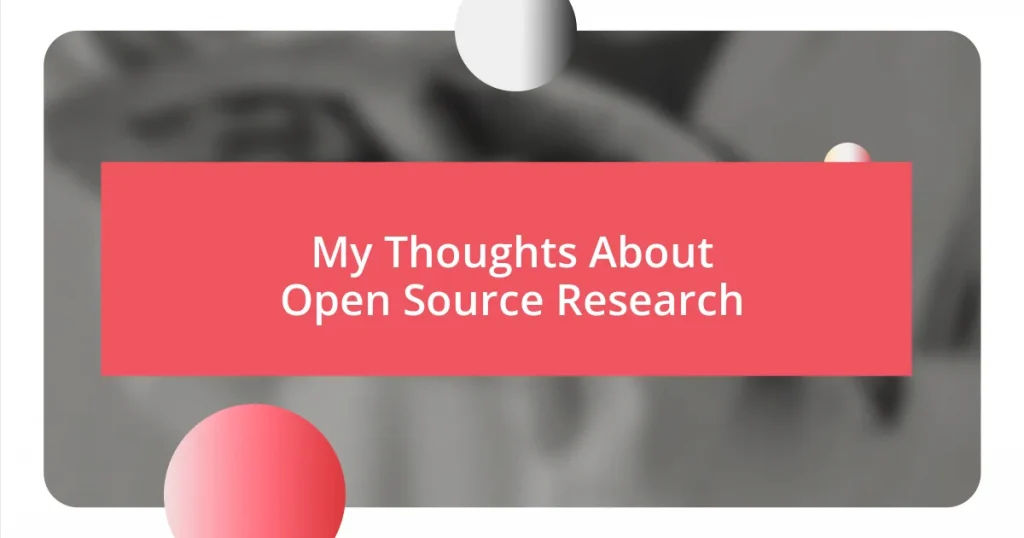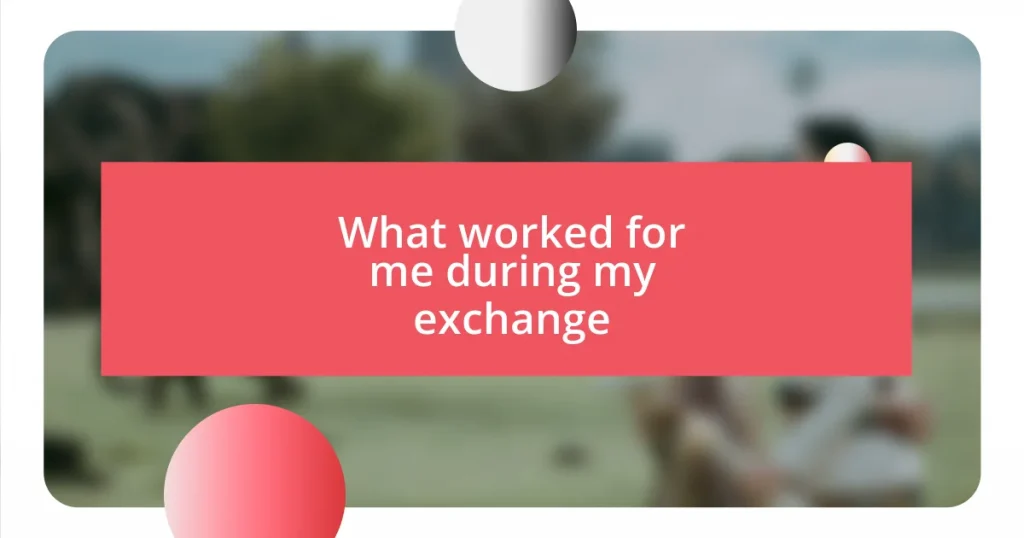Key takeaways:
- Open source research promotes collaboration and accessibility, allowing diverse perspectives to enrich findings and democratizing information for broader engagement.
- Challenges include information overload, quality control, ethical concerns, and varying levels of expertise, which require discernment and responsibility from researchers.
- Best practices for research involve creating structured plans, maintaining comprehensive documentation, and prioritizing collaboration to enhance credibility and impact.
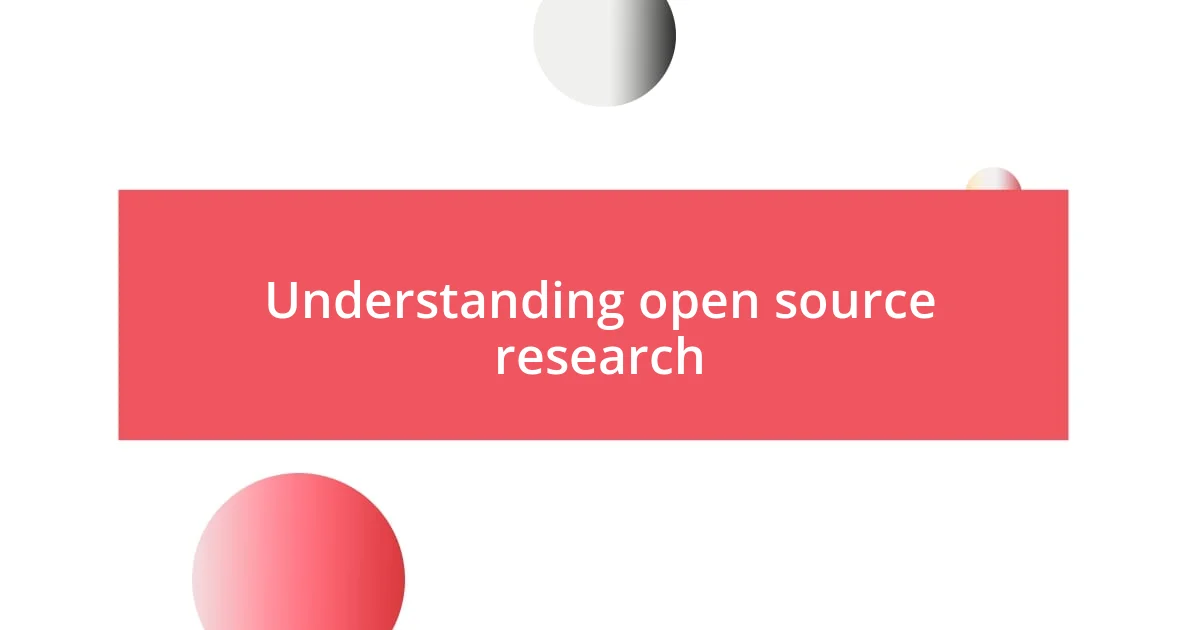
Understanding open source research
Open source research refers to the practice of gathering information from publicly available sources, making it a powerful tool in a variety of fields. I remember the first time I stumbled upon an open source data repository for a project I was working on. It felt like finding a treasure chest brimming with hidden gems—valuable insights that were just waiting to be uncovered.
Often, I find myself reflecting on the ethical implications of open source research. How do we balance accessibility with the need to protect sensitive information? This question weighs heavily on me, especially when I think back to a case where I sourced personal stories from a community forum. It was exhilarating to see firsthand the impact of freely shared knowledge, yet I felt a responsibility to respect the individuals behind those stories.
Through my experiences with open source research, I’ve come to appreciate its collaborative nature. It’s about harnessing collective knowledge to solve problems more effectively. Have you ever participated in a project that relied on contributions from many voices? I have, and it was amazing to witness how diverse perspectives can lead to innovative solutions we might never achieve alone.
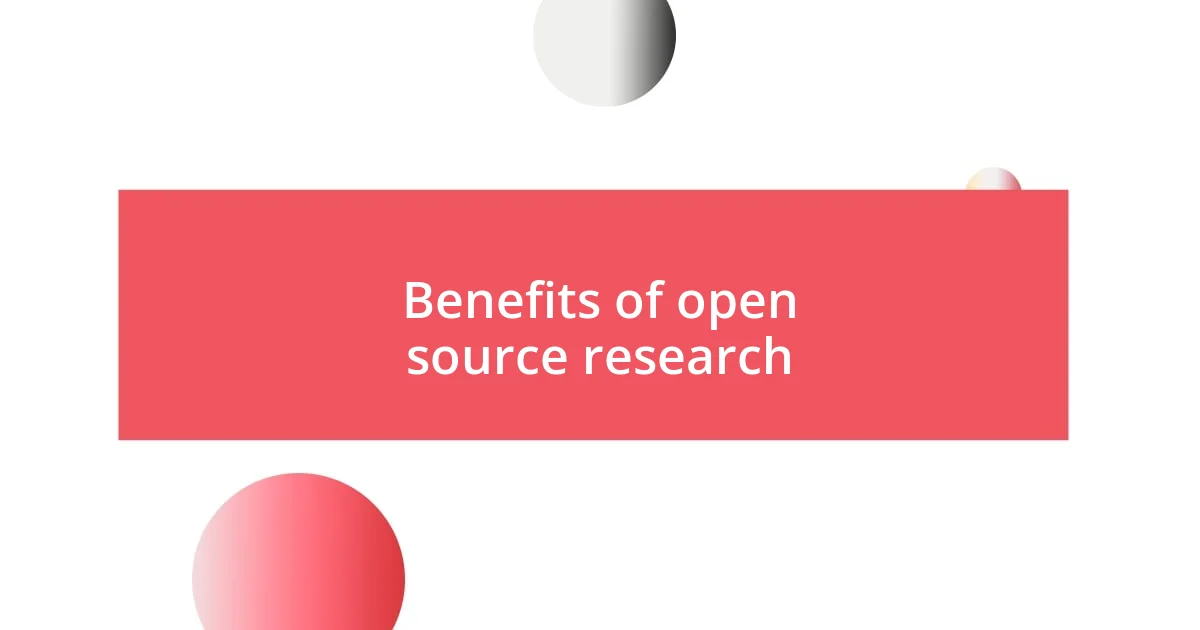
Benefits of open source research
Open source research opens the door to collaboration in ways that traditional research often can’t. I remember collaborating with a diverse group of researchers on a health-related project. Each person’s unique background brought new ideas to the table, significantly enriching our findings. By pooling our resources and knowledge, we tackled complex issues more innovatively than we could have alone.
Another significant benefit is accessibility. This practice democratizes information and allows people from all walks of life to engage with the research. I once shared a resourceful public database with a local non-profit, which used it to better target their outreach efforts. Seeing how accessible data transformed their approach was gratifying—it reminded me that information can empower change when it reaches the right people at the right time.
Moreover, the cost-effectiveness of open source research is worth mentioning. I’ve lost track of how many times I found pertinent studies without having to navigate subscription fees or institutional access barriers. This approach can lead to more robust research efforts without the budget constraints often associated with traditional research. By removing financial barriers, open source research enables more individuals to contribute, regardless of their resources.
| Benefits | Details |
|---|---|
| Collaboration | Brings diverse perspectives together, leading to innovative solutions. |
| Accessibility | Democratizes information, empowering communities and organizations to make informed decisions. |
| Cost-effectiveness | Removes financial barriers, allowing broader participation in research. |
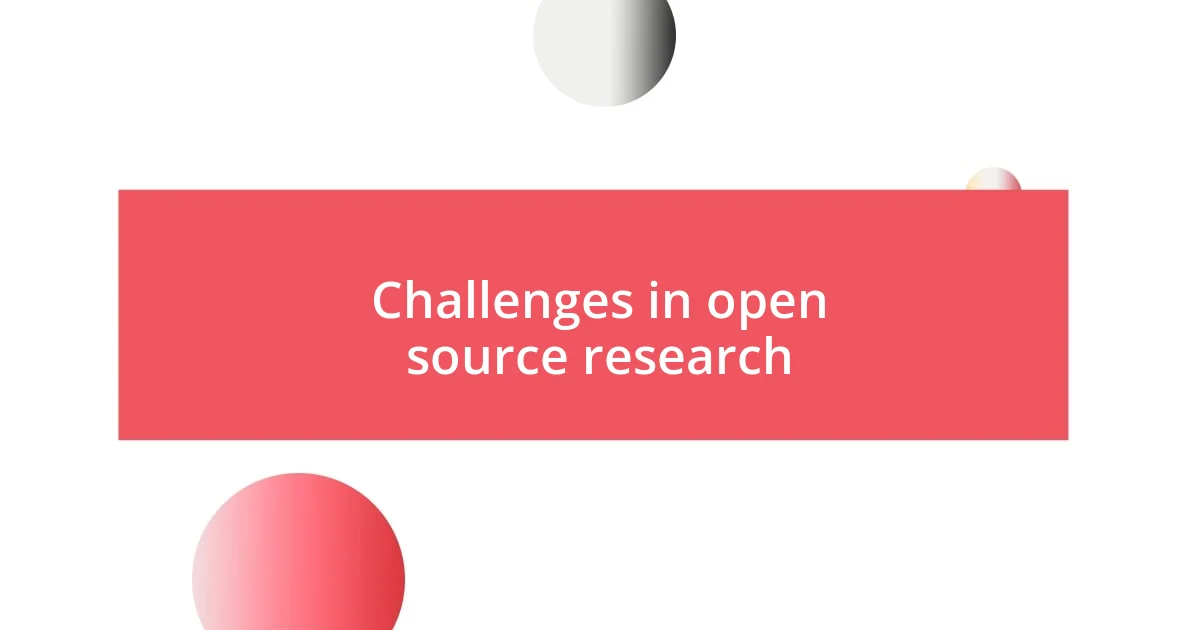
Challenges in open source research
Open source research, while brimming with potential, comes with its challenges that can sometimes feel daunting. One issue I often encounter is the overwhelming volume of information available. It can feel like navigating a maze—there’s so much out there that sifting through it all to find credible, relevant sources takes a significant amount of time and effort. I vividly recall a project where I spent hours trying to verify the reliability of several datasets before settling on the ones that truly added value. That experience taught me the importance of discernment in this field.
- Quality Control: Ensuring the reliability and accuracy of open-source data can be a challenge since not all sources undergo rigorous peer review.
- Ethical Concerns: Sourcing information may sometimes infringe upon privacy, especially when dealing with personal stories or sensitive data.
- Information Overload: The sheer volume of available resources can be paralyzing, making it hard to determine which are truly valuable for research purposes.
- Disparity in Skills: Not everyone has the same level of expertise in evaluating open sources, often leading to inconsistencies in the quality of research outcomes.
I can’t help but feel a touch overwhelmed at times when considering these barriers. Balancing the open nature of collaboration with an awareness of ethical implications can feel like walking a tightrope. In one instance, I found some invaluable community insights while conducting research, but I knew I had to tread carefully to avoid misrepresenting those personal narratives. It’s a tightrope walk that keeps me grounded in my responsibility as a researcher while striving for candidness and transparency.
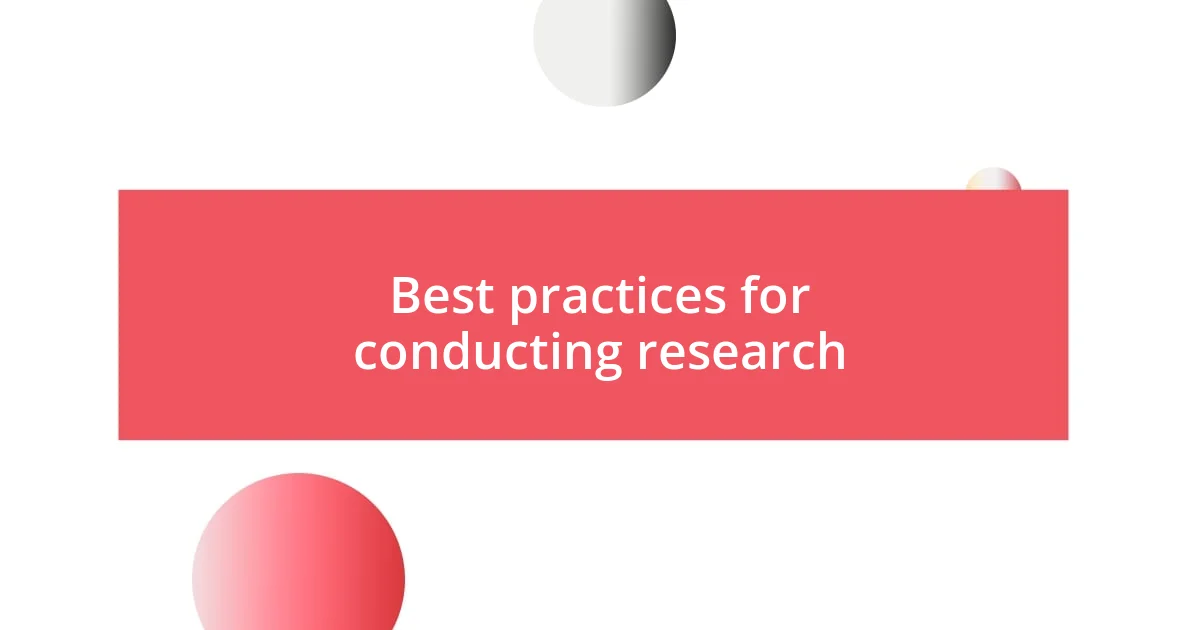
Best practices for conducting research
When I dive into research, I always start with a solid plan. It’s like mapping out a road trip—I want to know my destination and the stops along the way. Once, during a project on climate change, I outlined my objectives clearly, setting specific questions I wanted to answer. This made it easier to stay focused and avoid getting sidetracked by interesting but irrelevant data. Have you ever wandered down a research rabbit hole and lost time? It happens to the best of us, but a clear roadmap helps keep that in check.
Another practice that I find invaluable is maintaining detailed notes and documenting sources meticulously. I can’t stress enough how this habit saves me when piecing together findings. In one instance, I dug up a key study that supported my argument, but I had been so engrossed in my research that I hadn’t tracked where I found it. When it came time to share my work, I spent hours trying to trace it back. This taught me that organization is not just a tool; it’s essential for building credibility and ensuring accurate representation of others’ ideas.
Lastly, I always prioritize collaboration. I remember a time when I partnered with local scholars and community leaders for a project. The insights and perspectives they provided not only enriched my research but also grounded it in real-world applications. Have you ever considered how much richer your findings could be by including diverse viewpoints? Opening my research process to collaborative input transformed my approach and led to outcomes that were far more impactful. It’s a reminder that incorporating others can elevate the quality of our work significantly.
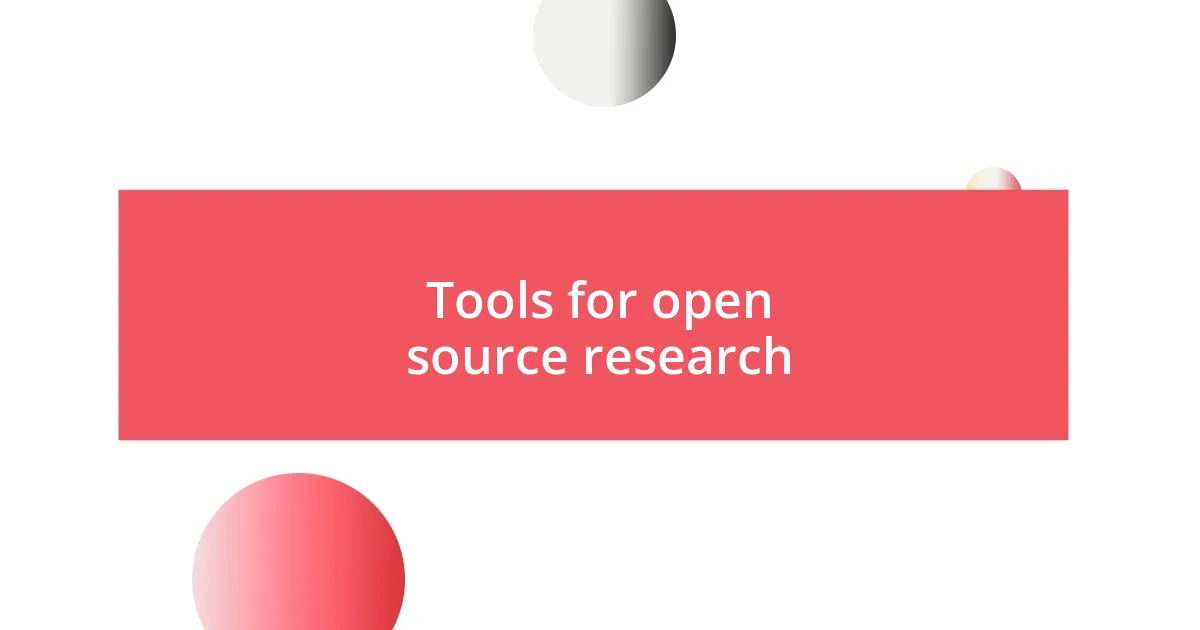
Tools for open source research
While there’s a plethora of tools available for open source research, I must say that my go-to favorites really stand out. For instance, I often rely on platforms like GitHub for accessing valuable datasets and documentation. Just recently, I stumbled upon an open-source project there that involved machine learning models which sparked a whole new angle for my research. Have you ever delved into a source and found a gem that shifted your perspective? That’s what open source research is all about—discovering unexpected resources that expand your horizons.
Another tool that I’ve found indispensable is Google Scholar. It’s like having a research assistant at my fingertips, ready to sift through academic papers. I recall a time when I needed to dive deep into a specific area of psychology. With just a few clicks, I had access to a wealth of peer-reviewed articles that guided my understanding. The real beauty of Google Scholar is the way it highlights citations, allowing me to trace the conversation through various studies—have you felt that thrill of connecting the dots between different works? It’s a satisfying journey that adds layers to my research.
Lastly, I can’t overlook the impact of social media in my open-source research toolbox. Platforms like Twitter and LinkedIn have proven invaluable for networking and discovering real-time conversations about trending topics. During my last project, I reached out to an expert in my field via Twitter, and their insights helped me refine my research question significantly. Isn’t it fascinating how these platforms can bridge gaps between researchers and thought leaders? Embracing these modern tools has transformed my approach, opening doors to collaborative opportunities that I once thought were out of reach.










